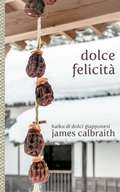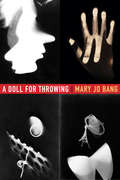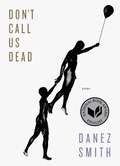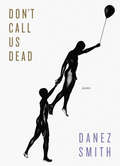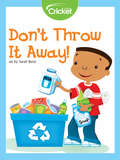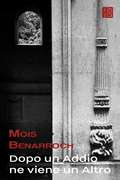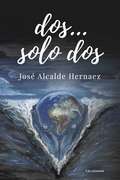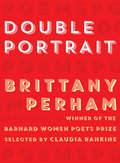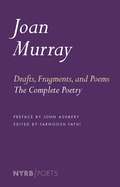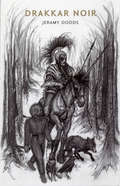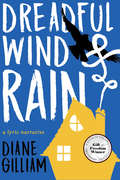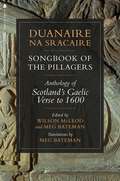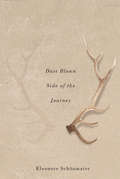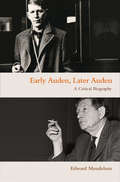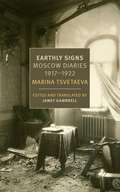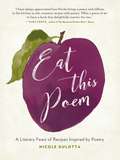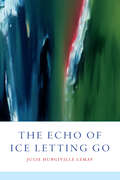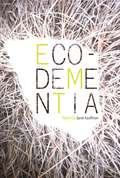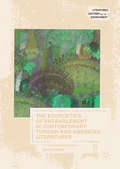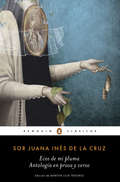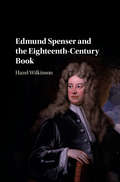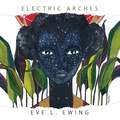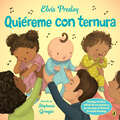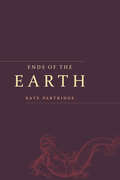- Table View
- List View
Dolce Felicità
by James Calbraith Valentina StaffieriSia come ingredienti fondamentale della cerimonia del tè, importanti elementi di riti di culto, o semplicemente come modo per rinfrescarsi durante la torrida estate giapponese, i dolci sono fondamentali per la vita e la cultura giapponese come la poesia o il giardinaggio. Per me, sono stati anche un modo per sperimentare questa cultura - e alcuni dei miei ricordi più belli del Giappone sono in un modo o nell'altro legati alla sua miriade di snack. Una notte d'estate, dal nulla, ho iniziato a scrivere degli haiku su questi ricordi. Ho finito con settanta piccole poesie - abbastanza per inserirle in questo opuscolo. Poesia e dolci Di cosa un uomo saggio ha bisogno di più In questa notte d'estate
A Doll for Throwing: Poems
by Mary Jo BangThe exquisite new collection by the award-winning poet Mary Jo Bang, author of The Last Two Seconds and ElegyWe were ridiculous—me, with my high jinks and hat. Him, with his boredom and drink. I look back now and see buildings so thick that the life I thought I was making then is nothing but interlocking angles and above them, that blot of gray sky I sometimes saw. Underneath is the edge of what wasn’t known then. When I would go. When I would come back. What I would be when.—from “One Glass Negative”A Doll for Throwing takes its title from the Bauhaus artist Alma Siedhoff-Buscher’s Wurfpuppe, a flexible and durable woven doll that, if thrown, would land with grace. A ventriloquist is also said to “throw” her voice into a doll that rests on the knee. Mary Jo Bang’s prose poems in this fascinating book create a speaker who had been a part of the Bauhaus school in Germany a century ago and who had also seen the school’s collapse when it was shut by the Nazis in 1933. Since this speaker is not a person but only a construct, she is also equally alive in the present and gives voice to the conditions of both time periods: nostalgia, xenophobia, and political extremism. The life of the Bauhaus photographer Lucia Moholy echoes across these poems—the end of her marriage, the loss of her negatives, and her effort to continue to make work and be known for having made it.
Don't Call Us Dead: Poems
by Danez Smith<P>Award-winning poet Danez Smith is a groundbreaking force, celebrated for deft lyrics, urgent subjects, and performative power.<P> Don’t Call Us Dead opens with a heartrending sequence that imagines an afterlife for black men shot by police, a place where suspicion, violence, and grief are forgotten and replaced with the safety, love, and longevity they deserved here on earth.<P> Smith turns then to desire, mortality—the dangers experienced in skin and body and blood—and a diagnosis of HIV positive.
Don't Call Us Dead: Poems
by Danez SmithFinalist for the National Book Award for PoetryWinner of the Forward Prize for Best Collection“[Smith's] poems are enriched to the point of volatility, but they pay out, often, in sudden joy.”—The New Yorker Award-winning poet Danez Smith is a groundbreaking force, celebrated for deft lyrics, urgent subjects, and performative power. Don’t Call Us Dead opens with a heartrending sequence that imagines an afterlife for black men shot by police, a place where suspicion, violence, and grief are forgotten and replaced with the safety, love, and longevity they deserved here on earth. Smith turns then to desire, mortality—the dangers experienced in skin and body and blood—and a diagnosis of HIV positive. “Some of us are killed / in pieces,” Smith writes, “some of us all at once.” Don’t Call Us Dead is an astonishing and ambitious collection, one that confronts, praises, and rebukes America—“Dear White America”—where every day is too often a funeral and not often enough a miracle.
Don't Throw It Away!
by Amy TaoReduce, recycle, and reuse. We can all help Earth, if we choose. In this poem, kids learn about the differences between recycling, compost, and hazardous waste.
Dopo un addio ne viene un altro
by Mois Benarroch Francesca RuscelloAmore urgente, amore latente, amore quotidiano, amore assente, amore di sempre, amore immaginato, amore vissuto, amore sposato, amore orfano, amore amante, amore amato, amore perduto, mancanza d'amore, amanti di minuti e amanti di anni, amore etico, amore estetico, donna vissuta e donna sognata, donna prima dell'esilio, donna dell'esilio, donna della gioventù, donna dell'infanzia. Queste poesie di Mois Benarroch trattano tutte le posizioni dell'amore nei giorni nostri, nel nostro mondo che è quello di sempre e così attuale. Mois Benarroch (Tetouan, Marocco,1959) è un poeta e romanziere. La sua poesia ha viaggiato mezzo mondo, raggiungendo dodici lingue. Ha ricevuto il prestigioso premio Yehuda Amijai per la poesia, poesia che scrive in tre lingue. Ha pubblicato libri in Israele, Spagna e Stati Uniti. in prestigiosi editori come Destino, Escalera, Hakibutz Hameujad e altri. Tra i suoi romanzi è possibile menzionare "Nelle porte di Tangeri", "Il ladro dei ricordi", "L'espulso" e "Sciarpa blues". Su Kindle si trovano i libri di poesie "Mare di Sefarad" e "Tuist il tuit", un libro di poesie che cambiano. Benarroch ha ricevuto il premio di primo ministro (2008) e il premio Yehuda Amichay per la poesia (2012)
Dos... Solo dos
by José Alcalde HernáezPoemas y quizás más de dos razones para ser feliz. Dos... Solo dos, es un poemario escrito en lenguaje sencillo. <P><P>Combina relatos y poemas, requiere de una lectura pausada y sosegada para apreciar mejor y así situar al autor. Esta obra está cargada de sentimientos muy sensibles, razona otros tantos, relata momentos de una vida y va siempre de la mano de la imaginación, mezclando fantasía y realidad. <P><P> Además, refleja al ser humano que, con valentía, reconoce sus errores y tiene la humildad para pedir perdón. Como refleja su portada, este poemario aboga por un mundo nuevo, un mundo mejor.
Double Portrait
by Brittany Perham“Musical, insightful, and all the way human.”—Claudia Rankine, 2016 Barnard Women Poets Prize citation Each poem in Brittany Perham’s prize-winning collection links two portraits: lover and beloved, child and parent, citizen and country, spirit and body, living and dead. Each speaker investigates what it means to be in relationship to another: what does it mean to see and be seen, to reflect and be reflected, to address and be addressed? With musicality, grit, and humor, these poems challenge our conceptions of identity and language. By questioning the ways we think and speak, the ways we rehash and reshape our experience, they formalize obsession. Emotionally stirring and unapologetic, Double Portrait contemplates the nature of devotion.
Drafts, Fragments, and Poems: The Complete Poetry
by Joan Murray John Ashbery Farnoosh FathiThe first appearance of this award-winning writer's work since the 1940s, this collection, which includes an introduction by John Ashbery, restores Joan Murray's striking poetry to its originally intended form.Though John Ashbery hailed Joan Murray as a key influence on his work, Murray’s sole collection, Poems, published after her death at the early age of twenty-four and selected by W. H. Auden for inclusion in the Yale Series of Younger Poets, has been almost entirely unavailable for the better part of half a century. Poems was put together by Grant Code, a close friend of Murray’s mother, and when Murray’s papers, long thought to be lost, reappeared in 2013, it became clear that Code had exercised a heavy editorial hand. This new collection, edited by Farnoosh Fathi from Murray’s original manuscripts, restores Murray’s raw lyricism and visionary lines, while also including a good deal of previously unpublished work, as well as a selection of her exuberant letters.
Drakkar Noir
by Jeramy Dodds Jeramy DoddsFollowing the Fratellini Family of clowns, Jeramy Dodds astonishes readers and non-readers alike. Techniques such as his patented triumph, the Grand Mal Caesura, along with other favourites, are on display inside. Dodds is a warlock of words, only to be outdone by them, enslaved by them, freed by them – maybe even loved by them. A haunting, yet hilarious depiction of a journey to and from the furthest limits of the human experiment.
Dreadful Wind & Rain: A Lyric Narrative
by Diane GilliamFrom the award-winning author of Kettle Bottom, a sequence of fairytale-inspired narrative poems concerning the life of a troubled girl.Once upon a time, there lived a girl whose story was not her own . . .So the story goes: Neglected and abused by her family, eclipsed by her elder and more beautiful sister, a young girl longs for happily-ever-after, for something, someone to rescue her. She is soon swept away into the next chapter of her life: marriage—a promising world mirroring Old Testament stories and fairy tale traditions. But loving just anyone and living the age-old &“ever-after&” narrative, as it turns out, fails to bring true happiness after all. Dragged down by a destructive marriage, her sister&’s continued manipulations, and the growing weight of roles and expectations created by others at her back, she must choose between continuing in her familiar, complacent life, or boldly breaking free—and finally making her own way.Named for an Appalachian murder ballad in which a girl is drowned by her sister, this lyrical fairy tale unseats expectations for what it means to live a fairy tale life, revealing the powerful force that comes from stripping away the traditional roles and beginning to write a story all your own.Praise for Dreadful Wind & Rain &“Ache and lift and veracity tambourine through these lines and stanzas. This . . . collection exults its power inside our ears and through our hearts in a rich, stinging, marvelous way . . . I believe that Diane Gilliam is incorruptible as a poet.&” —Nikky Finney, poet, winner of the National Book Award for Head Off & Split
Duanaire Na Sracaire: Anthology of Medieval Gaelic Poetry
by Wilson McLeod and Meg BatemanThe definitive Gaelic-English anthology of medieval Scottish verse: an annotated treasure trove of literary history spanning a millennium. Duanaire na Sracaire—or Songbook of the Pillagers—is the first anthology to bring together Scotland&’s Gaelic poetry from c.600-1600 AD, a time when Scotland shared its rich culture with Ireland. It includes a huge range of diverse poetry: prayers and hymns of Iona, Fenian lays, praise poems and satires, courtly songs and lewd rants, songs of battle and death, incantations and love poems. All poems appear with facing-page translations which capture the spirit and beauty of the originals and are accompanied by detailed notes. A comprehensive introduction sets the context and analyses the role and functions of poetry in Gaelic society. This collection will appeal to poetry lovers, Gaelic speakers and those keen to explore a vital part of Scotland&’s literary heritage.
Dust Blown Side of the Journey
by Eleonore SchönmaierAt times apocalyptic and other times passionate and intimate, Eleonore Schönmaier’s poems show the beauty of the lived and natural world in both wilderness and urban settings. A woman hides her love letters in beehives, a cherry tree in full blossom is transported horizontally on a bike, and three crows tap their beaks on a metal door. A grandmother gestures how birds once flew in blue skies, public smiles are outlawed, and a shot-down jet lands in a field of wildflowers. Men from warm countries wear big coats and are falsely suspected of hiding bombs, an Indigenous man is forced by police into the trunk of a car, and a stork lands in prison under charges of espionage. In Canada, the northern village of Paradise is under evacuation orders, and in Europe Desmond Tutu steps down from a podium into a crowd of photographers. Over a Belgian lunch Frederic Rzewski talks about his piano concerto A Dog’s Life, and a Dutch dinner is shared with a young refugee boy who laughs joyously. Reflecting a childhood in the northern Canadian boreal forest, combined with an adult life lived without borders, Eleonore Schönmaier’s vivid and sensual language invites the reader to fully join in and enjoy the journey.
Dust Blown Side of the Journey (Hugh MacLennan Poetry Series)
by Eleonore SchönmaierAt times apocalyptic and other times passionate and intimate, Eleonore Schönmaier’s poems show the beauty of the lived and natural world in both wilderness and urban settings. A woman hides her love letters in beehives, a cherry tree in full blossom is transported horizontally on a bike, and three crows tap their beaks on a metal door. A grandmother gestures how birds once flew in blue skies, public smiles are outlawed, and a shot-down jet lands in a field of wildflowers. Men from warm countries wear big coats and are falsely suspected of hiding bombs, an Indigenous man is forced by police into the trunk of a car, and a stork lands in prison under charges of espionage. In Canada, the northern village of Paradise is under evacuation orders, and in Europe Desmond Tutu steps down from a podium into a crowd of photographers. Over a Belgian lunch Frederic Rzewski talks about his piano concerto A Dog’s Life, and a Dutch dinner is shared with a young refugee boy who laughs joyously. Reflecting a childhood in the northern Canadian boreal forest, combined with an adult life lived without borders, Eleonore Schönmaier’s vivid and sensual language invites the reader to fully join in and enjoy the journey.
Early Auden, Later Auden: A Critical Biography
by Edward MendelsonPresented in one volume for the very first time, and updated with new archival discoveries, Early Auden, Later Auden reintroduces Edward Mendelson's acclaimed, two-part biography of W. H. Auden (1907–73), one of the greatest literary figures of the twentieth century. This book offers a detailed history and interpretation of Auden’s oeuvre, spanning the duration of his career from juvenilia to his final works in poetry as well as theatre, film, radio, opera, essays, and lectures. Early Auden, Later Auden follows the evolution of the poet’s thought, offering a comparison of Auden’s views at various junctures over a lifetime. With penetrating insight, Mendelson examines Auden’s early ideas, methods, and personal transitions as reflected in poems, manuscripts, and private papers. The book then links changes in Auden’s intellectual, emotional, and religious experience with his shifting public role—showing the depth of his personal struggles with self and with fame, and the means by which these internal conflicts were reflected in his art in later years. Featuring a new preface by the author, Early Auden, Later Auden is an engaging and timeless work that demonstrates Auden’s remarkable range and complexity, paying homage to his enduring legacy.
Earthly Signs: Moscow Diaries, 1917-1922
by Marina Tsvetaeva Jamey GambrellA moving collection of autobiographical essays from a Russian poet and refugee of the Bolshevik Revolution.Marina Tsvetaeva ranks with Anna Akhmatova, Osip Mandelstam, and Boris Pasternak as one of Russia’s greatest twentieth-century poets. Her suicide at the age of forty-eight was the tragic culmination of a life buffeted by political upheaval. The essays collected in this volume are based on diaries she kept during the turbulent years of the Revolution and Civil War. In them she records conversations of women in the markets, soldiers and peasants on the train traveling from the Crimea to Moscow in October 1917, fighting in the streets of Moscow, a frantic scramble with co-workers to dig frozen potatoes out of a cellar, and poetry readings organized by a newly minted Soviet bohemia. Alone in Moscow with two small children, no income, and a missing husband, Tsvetaeva struggled to feed her daughters (one of whom died of malnutrition in an orphanage), find employment in the Soviet bureaucracy, and keep writing poetry. Her keen and ruthless eye observes with compassion and humor—bringing the social, economic, and cultural chaos of the period to life. These autobiographical writings not only give a vivid eyewitness account of Russian history but provide vital insights into the workings of Tsvetaeva’s unique poetics.Includes black and white photographs.
Eat This Poem: A Literary Feast of Recipes Inspired by Poetry
by Nicole GulottaA literary cookbook that celebrates food and poetry, two of life's essential ingredients.In the same way that salt seasons ingredients to bring out their flavors, poetry seasons our lives; when celebrated together, our everyday moments and meals are richer and more meaningful. The twenty-five inspiring poems in this book—from such poets as Marge Piercy, Louise Glück, Mark Strand, Mary Oliver, Billy Collins, Jane Hirshfield—are accompanied by seventy-five recipes that bring the richness of words to life in our kitchen, on our plate, and through our palate. Eat This Poem opens us up to fresh ways of accessing poetry and lends new meaning to the foods we cook.
The Echo of Ice Letting Go
by Julie LeMayRooted in the harsh, yet beautiful landscape of Alaska, this collection of poems is at once comforting and disquieting, permeated with wisdom, darkness, and resilience. Taken together, the poems form a powerful narrative, as Julie Hungiville LeMay relates a personal story of the recurrence of cancer and interweaves it with an account of her son’s struggle with addiction. In a world of so much pain, her poems ask, how can we find meaning? The answer, often, is nature: among “spruce branches that whisper” and “the yellow joy / of warblers.” Half-found poems that contain lines from John Muir's essays are arranged throughout the book like touchstones, while other poems invoke the spirit of Wordsworth. LeMay’s voice is precise and clear, her lines musical and sonically rich, making this ambitious, wide-ranging book one that readers won’t soon forget.
Eco-dementia
by Janet KauffmanJanet Kauffman describes “eco-dementia” as a paradoxical condition of humanity—a love of the living world while simultaneously causing and suffering from its destruction. Like other dementias, losses are profound. We lose touch, we forget. We don’t recognize our own home—the habitat that sustains us. What has driven us to exploit more and more resources, even when risking self-annihilation? Eco-dementia is not nature poetry, but an immersive language in the tangle of the living world that begs the question: can we survive this relationship? The poems in Eco-dementia took shape in one decade of the author’s life. In three sections, Kauffman reflects on insanities and devastations, from the personal to the global. From her father’s Alzheimer’s and the ravaged world of his mind to the horrors of Abu Ghraib, Hurricane Katrina, and toxins in Lake Erie, as well as the planetary-wide ecological catastrophe of climate change. Yet despite this devastation, it is possible to surround ourselves in light and air, to touch the tall grasses we love, to step into water and shade and feel an intense, momentary joy. Kauffman’s poems show the bliss within the elemental richness of the natural world and also the violent distortions and grief at its devastation. Like learning a new language, we can see and hear words, sometimes understanding so clearly and other times not at all. Or as Kauffman’s father puts it, “I know where you live, but I don’t know who you are.” The language of these poems is the physical material of a damaged world. Readers of modern and experimental poetry will treasure this collection.
The Ecopoetics of Entanglement in Contemporary Turkish and American Literatures
by Meliz ErginThis book foregrounds entanglement as a guiding concept in Derrida's work and considers its implications and benefits for ecocritical thought. Ergin introduces the notion of "ecological text" to emphasize textuality as a form of entanglement that proves useful in thinking about ecological interdependence and uncertainty. She brings deconstruction into a dialogue with social ecology and new materialism, outlining entanglements in three strands of thought to demonstrate the relevance of this concept in theoretical terms. Ergin then investigates natural-social entanglements through a comparative analysis of the works of the American poet Juliana Spahr and the Turkish writer Latife Tekin. The book enriches our understanding of complicity and accountability by revealing the ecological network of material and discursive forces in which we are deeply embedded. It makes a significant contribution to current debates on ecocritical theory, comparative literature, and ecopoetics.
Ecos de mi pluma: Antología en prosa y verso
by Sor Juana de la Cruz«Pero valor, corazón: porque en tan dulce tormento, en medio de cualquier suerte no dejar de amar protesto» Sor Juana Inés de la Cruz es una de las poetas más importantes de la lengua española. Cierra con broche de oro el Barroco hispánico y es, además, una figura muy seductora: mujer, monja, sabia, defensora de la capacidad intelectual de las mujeres. Sin embargo, como todo autor célebre, sor Juana ha sido víctima de su fama: todo mundo la conoce, pero muy pocos la leen. Esta antología presenta una selección representativa de su obra, cuidadosamente puntuada y anotada, para acercarla a cualquier tipo de lector. Como novedad se incluyen, por primera vez juntas, la Carta de sor Juana a su confesor, el padre Núñez, y la Respuesta a sor Filotea de la Cruz, dirigida al obispo de Puebla, atinadamente comentadas por la editora: Martha Lilia Tenorio, especialista en poesía barroca, dedicada a recuperar buena parte del acervo lírico de Nueva España. Edición, prólogo, notas y cronología de MARTHA LILIA TENORIO.
Edmund Spenser and the Eighteenth-Century Book
by Hazel WilkinsonEdmund Spenser's epic poem The Faerie Queene (1590-96) occupied an important place in eighteenth-century culture. Spenser influenced almost every major writer of the century, from Alexander Pope to William Wordsworth. What was it like to read Spenser in the eighteenth century? Who made Spenserian books, and how did their owners use and interpret them? The first comprehensive study of all of the eighteenth-century editions of Edmund Spenser addresses these questions through bibliographical analysis, and through examination of the history of the book and of eighteenth-century literature and culture. Within these contexts, Hazel Wilkinson provides new information about the production, contents, texts, and reception of the eighteenth-century editions of Spenser, to illuminate how his cultural presence became so far-reaching. With each chapter structured around a major edition of Spenser's work, this volume provides a timely addition to arguments about the nature of literary history and the growing cult of great writers of the past.
Electric Arches
by Eve L. EwingElectric Arches is an imaginative exploration of Black girlhood and womanhood through poetry, visual art, and narrative prose. <p><p> Blending stark realism with the surreal and fantastic, Eve L. Ewing's narrative takes us from the streets of 1990s Chicago to an unspecified future, deftly navigating the boundaries of space, time, and reality. Ewing imagines familiar figures in magical circumstances--blues legend Koko Taylor is a tall-tale hero; LeBron James travels through time and encounters his teenage self. She identifies everyday objects--hair moisturizer, a spiral notebook--as precious icons. <p> Her visual art is spare, playful, and poignant--a cereal box decoder ring that allows the wearer to understand what Black girls are saying; a teacher's angry, subversive message scrawled on the chalkboard. Electric Arches invites fresh conversations about race, gender, the city, identity, and the joy and pain of growing up.
Elvis Presley's Quiéreme con ternura
by Elvis PresleyQuiéreme con ternura. Quiéreme con dulzura. Nunca me dejes ir. Has llenado mi vida. Te quiero mucho, mi amor. Tomando como punto de partida la letra oficial de la conocida canción de Elvis Presley, este precioso y tierno álbum ilustrado es una oda al lazo de amor que existe entre padres e hijos.
Ends of the Earth: Poems (The Alaska Literary Series)
by Kate PartridgeEnds of the Earth uses the landscape of Alaska as a testing ground for love and elegy. It is a poetry collection that contains both lyric responses to the urban Alaska environment and extended sequences that cycle between autobiography, mythic allusion, and the literary archive. In her work, Kate Partridge combines the fresh perspective of a newcomer with explorations of the landscape and lifestyles through allusions to classic literature. While the poems turn an inquisitive, contemporary lens to the subject of Alaska, elements throughout the book are influenced by twentieth-century writers like Elizabeth Bishop and Marianne Moore. The manuscript also combines personal experience with collaged material from the Epic of Gilgamesh, Walt Whitman's notebooks, and other classic sources, to investigate the ideas of love, isolation, and location. Through humor and observation, Partridge takes a new look at what it means to live in urban Alaska and the world at large.
